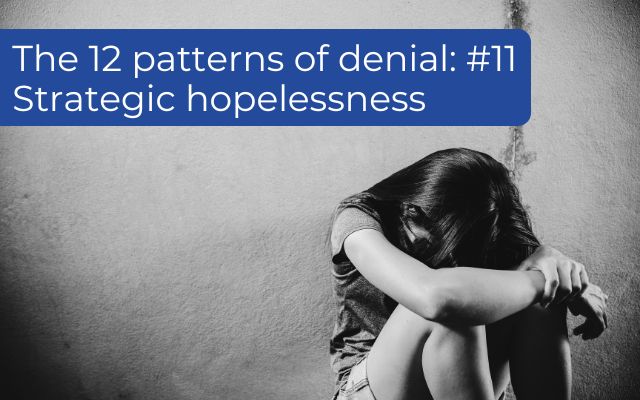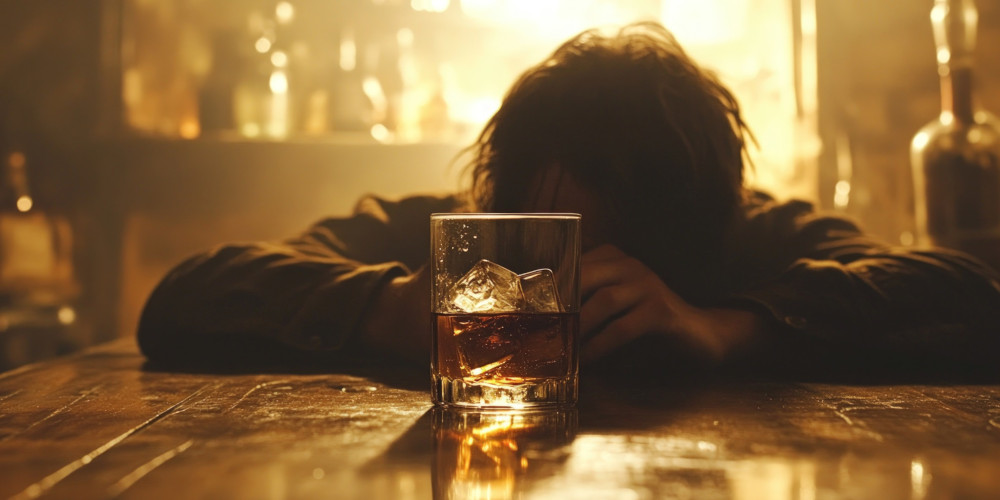In this blog we will look at the denial pattern of strategic hopelessness in addiction. People with addiction or substance abuse problems use different forms of denial to keep themselves in the addictive cycle. Denial can be a dysfunctional protection mechanism which you may use to protect yourself from having to recognise, deal with and accept the reality of what is occurring in your life. This is often unconscious.
To recover from addiction, it is incredibly important to be able to identify denial. The 12 patterns of denial were developed by international addiction expert Terence Gorski to help addicts and those around them uncover these denial strategies. Read on to find out more about how people with chemical dependency use strategic hopelessness as a denial strategy to safeguard their addictive behaviours.
What is Denial in Addiction?
Denial is the first issue to address when addicted persons enter treatment or try other ways of recovering from their substance use disorder.
Denial is when someone
- Ignores reality
- Downplays reality
- Distorts reality
Reality is painful and difficult, and the addict turns to substances or other addictive behaviours to cope – i.e., to escape.
In the words of Dr Diamond: “The addict cannot tolerate reality… Neither internal reality nor external reality”. “They find reality repugnant, uncomfortable, and overwhelming, and prefer, like the psychotic, withdrawal into fantasy, bliss, or oblivion over reality.”
The first of the 12 steps of Alcoholics Anonymous, and other 12-step programmes, is completely geared at confronting and overcoming denial: We admitted that we were powerless over alcohol/drugs – that our lives had become unmanageable.
Without truly confronting and overcoming denial, no matter how much you want to get better, denial will trip you up and prevent you from recovering. This can be a tricky process because denial comes in so many forms and has become so normalised to the addict that they struggle to even recognise when they are using a given pattern of denial.

What is Strategic Hopelessness in Addiction Denial?
“Since nothing works, I don’t even have to try”
This denial pattern often emerges in people who have gone to treatment multiple times. After a number of relapses, a person may start to think that their situation is hopeless. Instead of trying to get sober again they might simply give up.
They may believe that because they haven’t yet ‘got’ recovery, they will never get it right – no-matter what they do or how hard they try.
A person who is using this pattern of denial might believe they are unable to change and may think there is no use in even trying. It might seem easier to give up than to keep trying.
A person who is following a pattern of strategic hopelessness might push people away who are trying to help them.
This belief, of course, isn’t true. Many people need multiple attempts at recovery to find sustained freedom from active addiction.
This pattern is called strategic hopelessness for a reason: There are no hopeless cases or lost causes. Anyone can recover if they really want to by following a programme of recovery.
This hopelessness only serves as an escape from taking responsibility and becomes a reason to carry on using or drinking without trying to get better.
There is no such thing as a hopeless case when it comes to recovering from addiction. Strategic hopelessness is simply a pattern of denial that allows a person with an addiction to avoid trying to get clean and sober.
Are you struggling with denial? Contact us for help today.
Read more about the 12 patterns of denial below:


